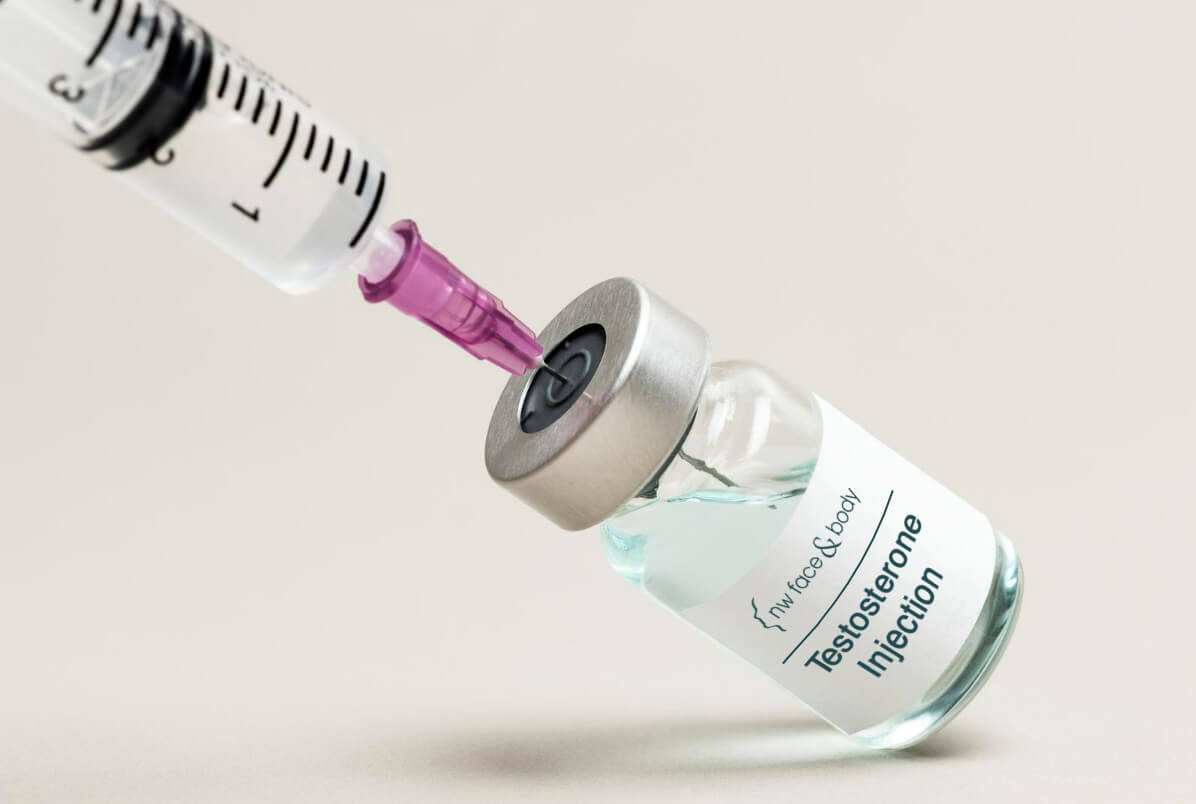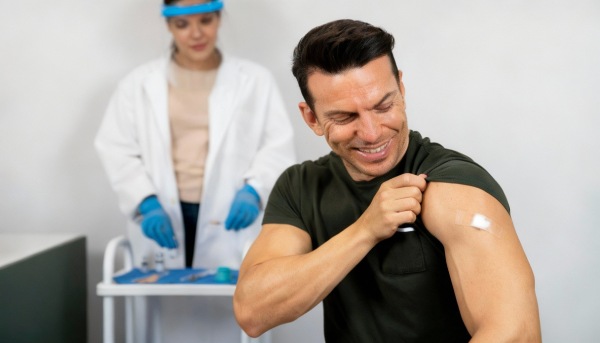- Search
- About
- Blog
- Careers
- Compounding Pharmacy
- Finance
- Hotels
- Our Team
- Our Mission
- Our Practice
- Virtual Consultations
- Areas We Serve
- Breast Reduction Bellevue Kirkland
- Breast Augmentation Bonney Lake
- Breast Augmentation Lake Tapps
- Breast Augmentation Hawaii
- Facial Fat Transfer in Bellevue & Kirkland With Dr. Khezri
- Tirzepatide For Weight Loss in Bellevue
- Tirzepatide Oral Tablets Kirkland & Bellevue
- Face
- Advanced Hairline Transplant
- Blepharoplasty
- Brow Lift
- Buccal Fat Removal
- Chin Augmentation
- Chin Liposuction
- CO2 Laser Resurfacing
- Direct Brow Lift
- Deep Plane Facelift
- Dimple Creation
- Ear Pinning
- Eyebrow Transplant
- Fat transfer to face
- Facelift
- Facelift With FX Laser Resurfacing
- Fat Transfer Under Eye
- Fat Transfer To Lips
- Grafts Neograft Follicular Unit Extraction
- Hair Transplant
- Hair Transplant Revision
- Hairline Lowering
- Laser Facelift
- Lip Lift
- Liquid Facelift
- Lower Blepharoplasty
- Lower Face Contouring
- Major Scalp Reduction
- Mini Facelift
- Midface Lift
- Minor Scalp Reduction
- Nano Fat Transfer For Your Under-Eyes
- Nano Fat Hair Transplant
- Neck Lift
- Neck Liposuction
- Nose Acne Laser Resurfacing
- Platysmaplasty
- Pumpkin Planing
- Revision Facelift
- Revision Rhinoplasty
- Rhinoplasty / Septoplasty
- Scalp Expander
- Submentoplasty
- Temporal Brow Lift
- Ultrasonic Piezo Rhinoplasty
- Upper Blepharoplasty
- Breast
- Breast Augmentation
- Breast Augmentation Exparel
- Breast Augmentation With Lift
- Breast Augmentation: Gummy Bear
- Breast Augmentation: Saline
- Breast Augmentation: Silicone
- Breast Implant Exchange
- Breast Lift
- Breast Lift With Implant Removal
- Breast Reconstruction Revision
- Breast Reduction
- Breast Reduction Revision
- Breast Revision
- Breast Animation Correction
- Dual Plan Breast Augmentation
- En Bloc Breast Implant Removal
- Fat Transfer to Breasts
- Gynecomastia
- Ideal Breast Implant
- Mandibular Implants
- Revision Breast Lift
- Subfacial Breast Augmentation
- Transaxillary Breast Augmentation
- Transumbilical Breast Augmentation
- Vectra3D Imaging
- Body
- Arm Lift
- Arm Liposuction
- Back Liposuction
- Body Lift
- Brazilian Butt Lift
- Belt Lipectomy
- Bra Line Back Lift
- Breast Lift with Tummy Tuck
- Clitoral Hood Reduction
- Exparel Tummy Tuck
- Extended Tummy Tuck
- Fleur De Lis Tummy Tuck
- Hip Dip Fat Transfer
- Knee Liposuction
- Labiaplasty
- Liposuction
- Liposuction 360
- Liposuction on Thighs
- Male Tummy Tuck
- Mini Tummy Tuck
- Mommy Makeover
- Monsplasty
- Muscle Plication
- Plastic Surgery After Massive Weight Loss
- Revision Mommy Makeover
- Reverse Tummy Tuck
- Skin Removal After Weight Loss
- Thigh lift
- Tummy Tuck
- Tummy Tuck Revision
- Tummy Tuck With Thigh Lift
- Tummy Tuck After Weight Loss
- Tummy Tuck After Semaglutide
- Vaser High Definition
- Hymenoplasty
- Weight Loss
- Non-Invasive
- Bellafill
- Botox
- Botox For Bunny Lines
- Botox for Droopy Eyelids
- Botox For Hooded Eyes
- Botox For Gummy Smile
- Botox For Smile Lines
- Botox For Platysmal Bands
- Botox for Migraines
- Botox for Bruxism
- Botox For TMJ
- Botox for Calves
- Botox for Premature Ejaculation
- Botox for Hair Loss
- Botox For Plantar Hyperhidrosis
- Cheek Filler
- Chin Filler
- Dermal Facial Fillers
- Dysport
- Daxxify
- Hand Filler
- Jaw Filler
- Juvederm
- Kybella
- Lip Filler
- Laser Hair Removal For Men
- Laser Hair Removal For Women
- Marionette Line Filler
- Non-Surgical Hair Restoration
- Non-Surgical Rhinoplasty
- Non-Surgical Gynecomastia
- Penile Filler
- Radiesse
- Restylane
- Restylane Eyelight
- Rain Facial
- Smile Line Filler
- Sculptra
- Scrotum For Botox
- Trans Laser Hair Removal
- Tear Trough Filler
- Trapezius Botox
- Temple Filler
- ThermiVa
- Salmon PDRN Treatment
- Skin
- Keloid Scar Treatment
- Acne Treatment
- Brow Lamination
- Chemical Peel
- Combo Brows
- Dermaplaning
- Eyebrow Tint
- Free Skin Consultation
- IPL
- Laser Hair Removal
- Laser Patch Test Protocol
- Laser Scar Resurfacing
- Laser Tattoo Removal
- Lash & Brow Services
- Lash Extensions
- Lash Lift & Tint
- Led Light Therapy
- Melasma Treatment
- Microneedling
- Mole Removal
- Photofacial
- Powder Brows
- RF Microneedling for Scars
- RF Microneedling
- The Perfect Derma Peel
- VI Peel
- Waxing
- Zombie Carbon Laser Peel
- Medical Treatments
- Specials
- Pricing
- Gallery
- Call (425) 576-1700
Testosterone Replacement Therapy in Bellevue & Kirkland, WA
Procedure Time
30 mins - 1 hr
Recovery Time
none
$199
Per Month Subscription
Includes prescribed medication, follow-up appointments and ongoing lab monitoring.
*Available in Injection, Tablets or Topical Gel.
Includes your lab work (Total Testosterone, CBC, PSA for men 40+) and treatment plan setup.
$99
Setup & Labs
Includes your lab work (Total Testosterone, CBC, PSA for men 40+) and treatment plan setup.
Testosterone Replacement Therapy in Bellevue & Kirkland, WA
Many men in Bellevue and Kirkland struggle with fatigue, low libido, weight gain, or mood changes as they get older. Often, the real issue is low testosterone.
When testosterone levels drop, it can affect nearly every aspect of health – from muscle and bone strength to energy, sexual performance, and confidence. Unfortunately, these symptoms are often dismissed as “just aging,” leaving many men untreated and frustrated.
At Northwest Face & Body, we offer a guided Testosterone Replacement Therapy (TRT) program designed to restore hormone balance safely and effectively. As a local clinic with on-site medical providers, we deliver personalized care that online pharmacies and mail-order TRT services simply can’t match. We provide in-person or virtual consultations, thorough lab testing, and ongoing support – including a physician on call 24/7 – all right here in your community.
Understanding Low Testosterone (Low T)
Testosterone is the primary male hormone responsible for muscle mass, bone density, red blood cell levels, sexual function, mood, and energy. Men’s testosterone levels naturally decline with age (about 1% per year after age 30–40), and by midlife, many may experience a deficiency. Low T can also result from certain medical conditions, medications, or lifestyle factors.
What is Low T? Low testosterone (also known as male hypogonadism or Testosterone Deficiency Syndrome) is typically defined when a male has total testosterone levels below 300-ng/dL, combined with symptoms.
At Northwest Face & Body, we confirm diagnoses through morning blood tests and an evaluation of your health history before recommending therapy.

Signs and Symptoms of Low Testosterone in Men
Low testosterone does not look the same for every man. Some experience subtle changes that build gradually, while others may notice sudden shifts in their health, energy, or mood. Common signs include:

Low Sex Drive (Libido)
A decline in sexual interest is one of the most well-known effects of Low T. Men may notice they think less about sex, initiate intimacy less often, or feel less responsive to stimulation. In some cases, testosterone deficiency also contributes to weaker erections or erectile dysfunction, which can affect confidence and relationships.
Chronic Fatigue and Low Energy
Even with adequate sleep, men with Low T often describe feeling “worn out” throughout the day. Energy levels remain low, making it harder to keep up with work, exercise, or family activities. Many men notice that they tire more easily during physical activity or require more rest than before, which can impact their overall quality of life.
Loss of Muscle and Strength
Testosterone plays a direct role in building and maintaining lean muscle mass. With Low T, men may find that workouts no longer produce the same results. Muscles can feel weaker or smaller despite regular exercise, and strength training may become frustratingly less effective. This gradual loss of muscle also slows metabolism, which can contribute to weight gain.
Increased Body Fat
As testosterone levels decline, body composition often shifts toward increased fat storage, particularly in the abdominal area. Some men develop noticeable belly fat or a softer physique that resists diet and exercise. In severe cases, low testosterone can also lead to gynecomastia (enlarged breast tissue), caused by a hormonal imbalance between testosterone and estrogen.
Mood Changes and Brain Fog
Hormones strongly influence mental health. Men with Low T commonly report irritability, sadness, or loss of motivation. Depression and anxiety can develop or worsen. Cognitive symptoms are also common, as men may struggle with focus, memory lapses, or a sense of “brain fog.” These changes can affect professional performance, personal relationships, and overall confidence.
Other Effects
Beyond energy and mood, testosterone affects many body systems:
- Reduced body hair: Slower or thinner facial and body hair growth.
- Bone density loss: Increased risk of osteoporosis, fractures, or posture changes.
- Mild anemia: Low testosterone can reduce red blood cell production, leading to fatigue and weakness.
- Fertility issues: If low T occurs at a younger age, it can affect fertility (lower sperm count).
- Hot flashes or sweats: More common in men over 40 with significantly low levels.
Low testosterone is more than just a “male aging issue.” Because the symptoms are wide-ranging and often gradual, many men don’t realize their health changes are hormone-related until they’re properly tested.
Benefits of Testosterone Replacement Therapy
For men diagnosed with hypogonadism, medically supervised TRT can provide significant improvements. Scientific research has demonstrated the following benefits:

- Increased Libido & Sexual Function: TRT improves sex drive and erectile function in men with low levels. Many patients report a stronger desire and performance after therapy, and clinical studies confirm consistent improvements in libido for hypogonadal men1-3.
- Greater Muscle Mass & Strength (Better Body Composition): Testosterone is anabolic, so TRT helps increase lean muscle mass and reduce fat. Studies show significant improvements in muscle size and body composition when men with deficiencies are treated2-4.
- Improved Mood, Cognition, and Energy: Testosterone therapy often reduces depression and irritability while boosting motivation and mental clarity. Research confirms benefits for mood, cognition, and energy in men with Low T3.
- Stronger Bones: TRT increases bone mineral density, protecting against osteoporosis and fractures. Clinical trials show significant improvements in spinal and hip bone density after one year of therapy4.
- Potential Long-Term Health Improvements: Some studies suggest TRT may reduce the risks of cardiovascular disease, stroke, and even prostate cancer. An extensive 2024 study found that men receiving TRT had reduced mortality and fewer cardiac events compared to untreated men5.
Our Testosterone Replacement Therapy Program at NW Face & Body
Northwest Face & Body’s TRT program is designed for safety, convenience, and results:

- Free Consultation
A no-obligation, in-depth discussion of your symptoms and health goals to determine if TRT is right for you. - $99 Setup Fee
Covers your comprehensive initial evaluation and lab testing (Total Testosterone, CBC, PSA for men over 40). These labs (a $300+ value) are included in the setup fee. - Affordable Monthly TRT Plan – $199/mo
Covers prescriptions, unlimited clinic visits, annual labs, and 24/7 physician access online. No hidden fees. - Personalized Treatment Options
TRT can be administered via intramuscular injections, daily topical gels, or sublingual tablets, depending on your needs. We tailor the dosage and method to your lifestyle and goals, while also providing counseling on diet, exercise, and sleep for optimal results. - Ongoing Support and Monitoring
Follow-ups are scheduled at 1 month, 6 months, and annually, with additional visits if needed. Included lab work tracks testosterone levels, blood counts, and PSA to ensure safe and effective therapy. - Transparent Pricing
Our self-pay model eliminates insurance hassles. At $199 per month, the program often saves patients hundreds compared to piecemeal online or out-of-network services.
Why Choose a Local Clinic Over Online TRT Services?
- Face-to-Face Medical Evaluation: Low testosterone can significantly impact your health, making it a condition that needs a thorough evaluation. At our clinic, you’ll meet in person with a licensed medical provider who can perform a physical exam, discuss your medical history, and truly understand your symptoms. This comprehensive approach can catch underlying health issues that an online survey or rushed telemedicine call might miss. For example, fatigue and low libido could sometimes be caused by thyroid problems or other conditions – we rule those out and ensure TRT is the right answer for you. Online services that never actually see the patient may overlook such nuances, potentially leading to subpar care.
- Local Lab Testing & Monitoring: Our clinic handles your lab testing. We ensure tests are done correctly (at the right time of day, under proper conditions) and promptly review the results with you. Ongoing monitoring is a cornerstone of safe TRT. An online vendor might send you an initial lab kit, but continuity of care can suffer afterward. In contrast, NW Face & Body schedules regular follow-up labs (included in your monthly plan) and actively monitors your hormone levels, blood counts, and PSA levels. If something is off, we adjust immediately. You have the peace of mind that your health is being watched over by a consistent team that knows you.
- Personalized Dosage Adjustments: Everyone responds to testosterone differently. Finding the ideal dose or delivery method sometimes requires fine-tuning. In a local setting, it’s easy to come in for a quick blood draw or a check-up so we can adjust your treatment. Our providers can physically demonstrate injection techniques or assess any reactions in person. Online companies often have a one-protocol-fits-all approach and may be slower to adjust (you might only communicate via email/chat with different reps). With us, you can simply call or visit and speak to the same provider who manages your care, ensuring consistency and expertise in adjustments.
- Continuity of Care and Accessibility: Being a patient at a local clinic means you have a long-term partner in your health. Northwest Face & Body has been serving the Bellevue and Kirkland community for decades with a reputation for quality care. We aren’t a fly-by-night internet venture – we’re here for you today and will be here years down the road. If you have questions or an emergency, you know exactly where to find us and who to talk to. This level of trust and accountability is hard to match with an online-only service. Moreover, our 24/7 on-call physician means you can get help after hours if you ever need it (for example, if you experience an unexpected side effect or urgent concern, you can reach a doctor who knows your case). That’s something an out-of-state telemedicine provider is unlikely to offer.
- Comprehensive and Personalized Care: Unlike online TRT providers that primarily focus on medication delivery, our in-person clinic offers a holistic and integrated approach to your health. We prioritize your overall well-being by monitoring key health indicators, such as blood pressure, and assessing physical changes over time, while also coordinating your care with other healthcare needs.
- Beyond Medication: Our commitment extends beyond simply providing testosterone. We can facilitate referrals to specialists such as cardiologists or urologists when needed. Additionally, we offer complementary wellness services, including weight management and vitamin therapies, to enhance the benefits of TRT. We believe in optimizing your overall health, rather than just addressing a single aspect. You are a valued patient under our care, and we take that responsibility seriously.
Take the First Step – Reclaim Your Vitality
If you’re in Bellevue, Kirkland, or the greater Seattle area and suspect you have Low T, Northwest Face & Body can help. Our team combines medical expertise in hormone therapy with the attentive service of a patient-focused local clinic. This approach ensures a safe, effective, and personalized TRT experience, so you don’t have to settle for feeling less than your best due to low testosterone.
Contact Northwest Face & Body today to book your appointment. Our clinic truly cares, and we’re ready to help you regain vitality and confidence with safe, physician-supervised testosterone replacement therapy.
References (Scientific Sources)
- Rizk PJ, et al. (2017). Testosterone therapy improves erectile function and libido in hypogonadal men. Curr Opin Urol, 27(6):511-515pubmed.ncbi.nlm.nih.gov. – Findings: Testosterone treatment (TTh) showed consistent benefit in improving libido and mild erectile dysfunction in men with low testosterone levels.
- Bassil N, et al. (2009). The benefits and risks of testosterone replacement therapy: a review. *Ther Clin Risk Manag, 5:*427-448pmc.ncbi.nlm.nih.gov. – Findings: TRT in hypogonadal men can improve muscle mass, reduce fat (improving body composition), increase bone density, elevate mood and cognition, and enhance quality of life, with no evidence of increased prostate cancer risk in normal monitoring.
- Rojas-Zambrano JG, et al. (2025). Benefits of Testosterone Hormone in the Human Body: A Systematic Review. Cureus, 17(2): e78785cureus.com. – Findings: Testosterone supplementation in deficient men positively affects mood (reducing depression), sexual function, muscle strength, bone health, and even aspects of cardiovascular health (endothelial function), according to recent studies.
- Snyder PJ, et al. (2017). Effect of Testosterone Treatment on Volumetric Bone Density and Strength in Older Men with Low Testosterone. JAMA Intern Med, 177(4):471-479pubmed.ncbi.nlm.nih.gov. – Findings: In a placebo-controlled trial, one year of TRT in older men with Low T significantly increased spinal and hip bone mineral density and improved bone strength compared to placebo, indicating reduced osteoporosis risk.
- Blackwell KM, et al. (2024). Benefits of Testosterone Replacement Therapy in Hypogonadal Males. J Am Board Fam Med, 37(5):816-825pubmed.ncbi.nlm.nih.gov. – Findings: A large retrospective study found men with hypogonadism on TRT had lower mortality and reduced incidence of atrial fibrillation, stroke, and prostate cancer over 3 years versus matched men not on TRT, suggesting potential long-term health benefits of treating Low T (though further research is needed to confirm causation).